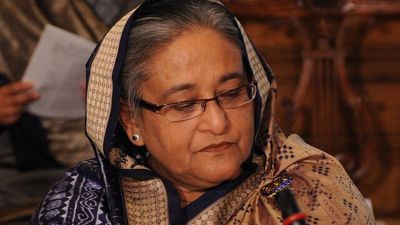Negotiations on a global plastics treaty in Geneva to address the mounting crisis of plastic pollution collapsed, yet again, and the chair of negotiations decided to adjourn the session to resume it at a later date.
India persisted with its stance that any treaty should be agreed through consensus, and said that the text arrived at through negotiations during the previous talks in Busan, Korea, should be the basis for future negotiations.

Weary negotiators from 184 countries were hoping to reach consensus on a revised text of the draft treaty on the 11th day of talks, over marathon closed-door meetings between Thursday and Friday. But, entrenched divisions on whether the treaty should address the entire life-cycle of plastics from production, control of chemical use, design, consumption and impacts or only pollution and waste management, eventually proved to be the undoing of the talks.
Story continues below this ad
Revised draft
Luis Vayas Valdivieso, the Ecuador diplomat who chaired the negotiating committee, had presented one version of the “chair’s draft text” on Wednesday, August 13, but it was widely slammed for being inadequate and imbalanced.
From Thursday onwards, the chair met with heads of country delegations and regional groups, and held informal talks, and produced a revised draft of the treaty. However, countries did not agree to either text, even as there was more agreement on the revised draft.
On Thursday, a stocktaking plenary was pushed multiple times, and just before midnight, Valdivieso announced that since consultations were still ongoing, the plenary was adjourned, leading to a last round of intense negotiations behind closed doors.
On Friday morning, as the plenary commenced, Valdivieso said no action was proposed on the revised draft.
Story continues below this ad
The chair’s first draft had made no mention of the life-cycle of plastic, clear definitions or plastic production cuts. The revised draft added language to “recognise” that the “current levels of production and consumption of plastics are unsustainable”, and thus necessitated a global response. It also reintroduced provisions on containing “chemicals of concern” used in plastic products.
India’s stance
A group of nearly 80 countries called the high-ambition coalition (HAC) backed a treaty with legally binding measures on addressing the entire life-cycle, especially regarding production cuts and containing chemicals of concern. The more prominent voices from this coalition included Norway, France, the United Kingdom, Canada, Panama, Mexico, Rwanda and Kenya. Including countries aligned with this coalition from outside, about 100 countries were pushing for higher ambition.
An opposing bloc of “like-minded countries” of oil-producing countries, led by Kuwait, consistently insisted that the treaty should not depart from its mandate. India had aligned with this bloc, and also added its concerns.
Speaking during the plenary on Friday, Neelesh Sah, Joint Secretary, Ministry of Environment, Forest and Climate Change, said, “There should not be a global listing of products or chemicals with phase-out dates at this stage. Taking into account that the instrument has to be implemented by states in a nationally driven manner, due consideration to national circumstances and capabilities should be given.”
Story continues below this ad
Kuwait’s representative said, “Deeply disappointed that after 11 days of intensive work, our views were not reflected in either draft, both of which were ultimately rejected by the parties.”
The representative of Norway, co-chair of the HAC, said that a legally binding instrument “must address life cycle, unsustainable consumption, chemicals, and it should evolve over time.” European Union’s (EU) Jessika Roswall said that the EU and member states (of 27 countries) had “higher expectations” from the meeting, but the outcomes (of this meeting) could be the basis for the resumed session.
Dharmesh Shah, public policy analyst, Center for International Environmental Law, said, “Progress has been held back by a small group of countries whose insistence on consensus-only decision-making has given the least ambitious voices the power to block measures supported by the majority — from production caps to controls on toxic chemicals.”
“This approach has delayed urgent action and weakened the treaty’s potential to protect health and human rights. Countries with the capacity and influence to lead, including India, have a choice: step up with ambition and help deliver a treaty that meets the scale of the crisis, or risk being remembered for defending the status quo while the world called for change,” he added.
Story continues below this ad
In 2022, the United Nations Environment Assembly adopted the resolution to develop a legally binding instrument to end plastic pollution. Since then, meetings have been held in Uruguay, France, Kenya, Canada, and the Republic of Korea to hammer out a global treaty.
As per projections of the Organisation for Economic Cooperation and Development (OECD), in a business-as-usual scenario, annual plastics production, use and waste generation are projected to rise by 70 per cent in 2040 compared to 2020.









